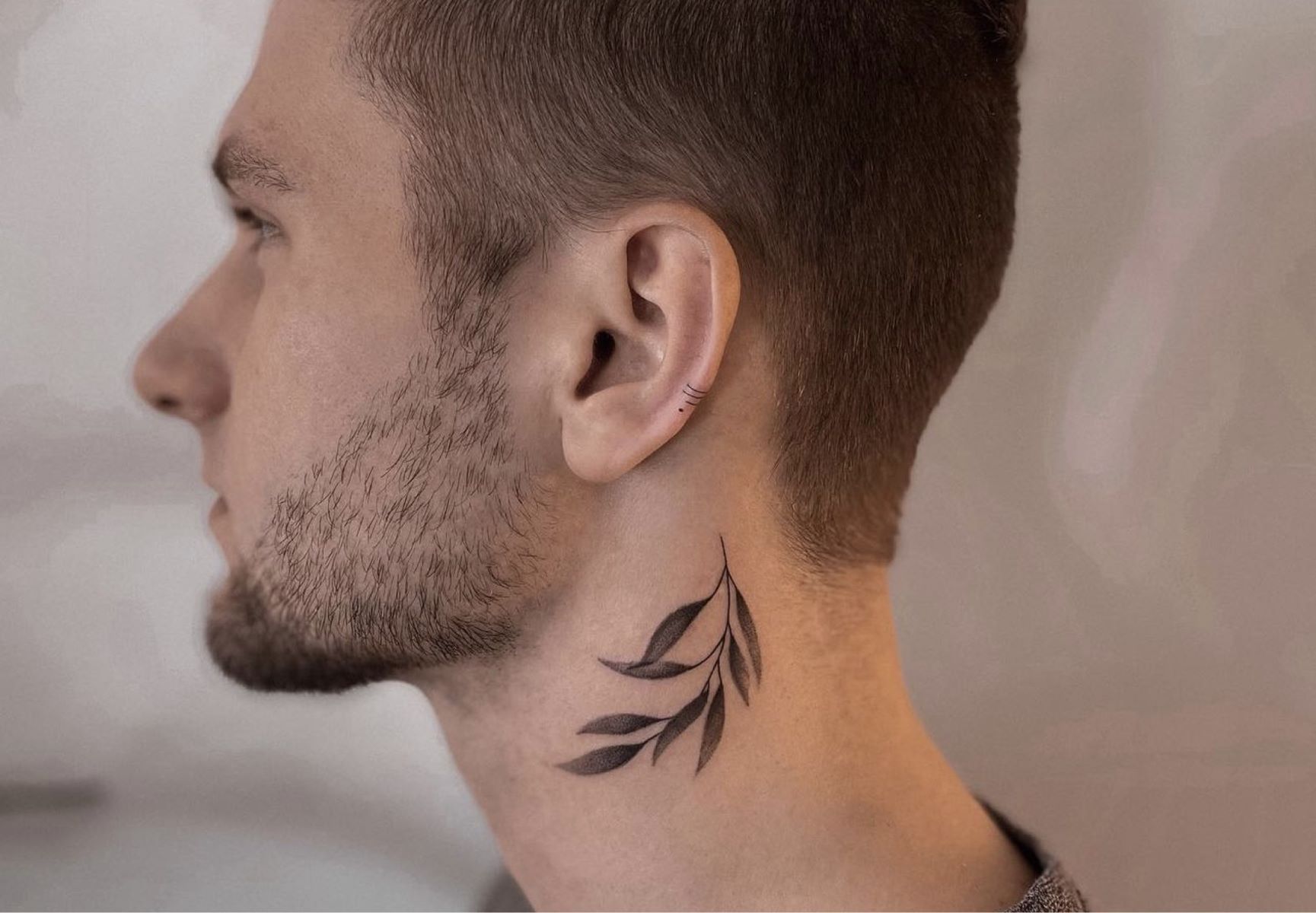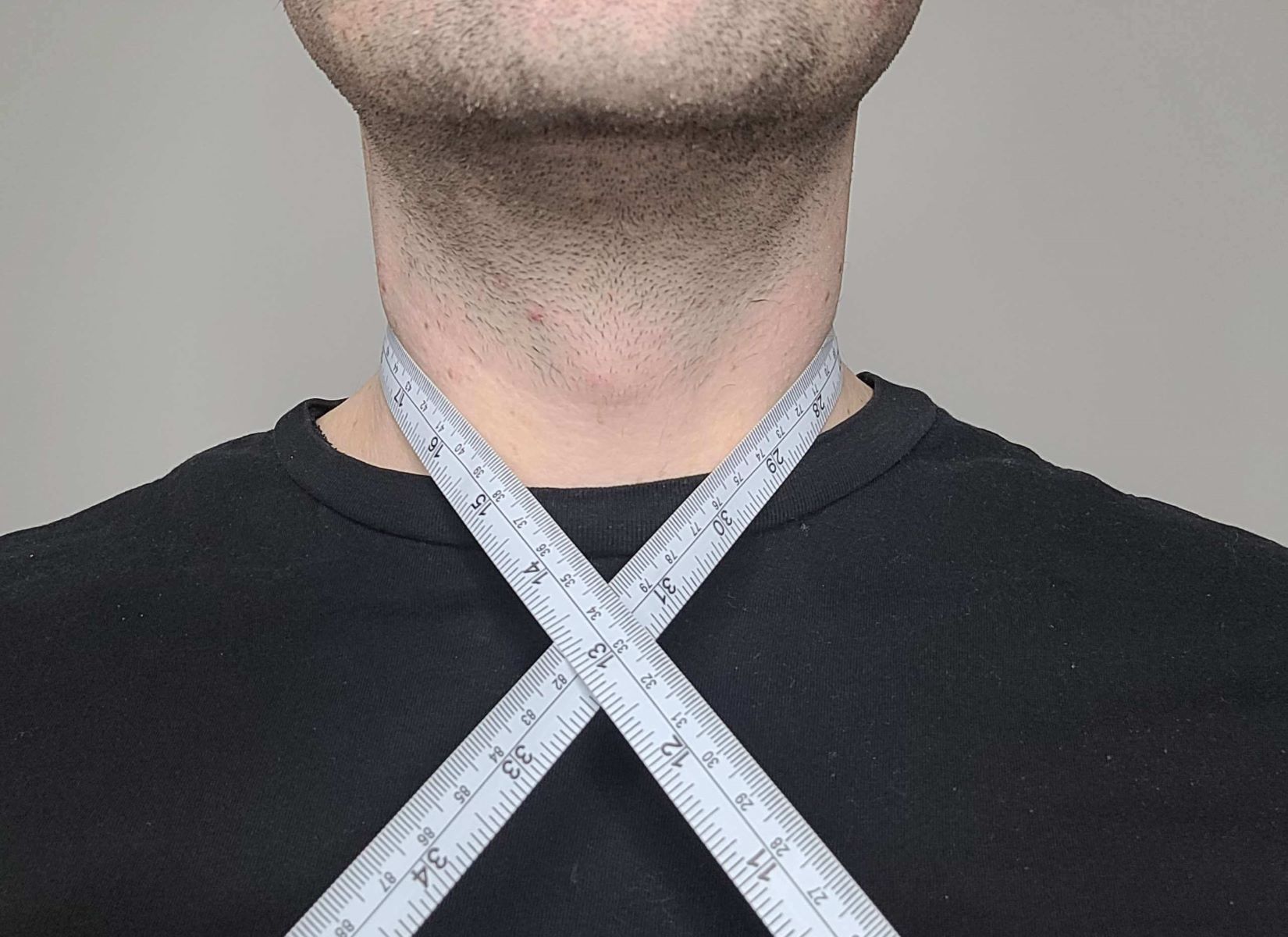Home>Parenting and Children>How To Convince Your 19-Year-Old To Reconsider A Neck Tattoo


Parenting and Children
How To Convince Your 19-Year-Old To Reconsider A Neck Tattoo
Published: January 21, 2024
Discover effective strategies for parents to persuade their 19-year-old to rethink getting a neck tattoo. Learn valuable insights on parenting and guiding children through important decisions.
(Many of the links in this article redirect to a specific reviewed product. Your purchase of these products through affiliate links helps to generate commission for Regretless.com, at no extra cost. Learn more)
Table of Contents
Introduction
So, your 19-year-old has expressed an interest in getting a neck tattoo. As a parent, this news may have triggered a mix of emotions within you. Perhaps you're feeling concerned about the potential impact of such a visible and permanent decision. It's natural to want to guide your young adult through this pivotal moment in their life. The journey ahead may seem daunting, but with the right approach, you can navigate this situation with empathy, understanding, and effective communication. This article aims to provide you with valuable insights and strategies to engage in a constructive dialogue with your 19-year-old about reconsidering a neck tattoo. Let's explore the steps you can take to approach this delicate conversation and support your young adult in making an informed and thoughtful decision.
Understanding the Decision
It's essential to begin by understanding the motivations and thought process behind your 19-year-old's desire to get a neck tattoo. This decision likely stems from a combination of factors, including a desire for self-expression, peer influence, and the pursuit of independence. At this stage of their life, young adults often seek to assert their individuality and make choices that reflect their evolving identity.
Consider the significance of body art in contemporary culture. Tattoos have become a prevalent form of self-expression, with each design holding personal meaning for the individual. Your 19-year-old may view a neck tattoo as a statement of their beliefs, experiences, or artistic inclinations. Furthermore, the influence of social media, celebrities, and popular culture can shape their perception of tattoos as a symbol of rebellion, creativity, or belonging to a particular community.
It's crucial to acknowledge that the desire for a neck tattoo may also be influenced by the need for autonomy and the expression of independence. As young adults transition into adulthood, they often seek to assert their agency and make decisions that reflect their growing sense of self-reliance. The desire for a neck tattoo may be a manifestation of their quest to exercise control over their body and appearance.
Additionally, peer influence and societal trends play a significant role in shaping your 19-year-old's perspective on tattoos. They may feel compelled to conform to the norms and aesthetics of their social circles, seeking validation and acceptance through body art. Understanding the external pressures and influences that contribute to their decision can provide valuable insights into their mindset.
By empathetically acknowledging these underlying motivations, you can demonstrate your understanding of the complex factors at play. This understanding forms the foundation for initiating an open and non-judgmental conversation with your 19-year-old, fostering an environment of mutual respect and trust. It's essential to approach this discussion with empathy and an open mind, recognizing that your 19-year-old's perspective is shaped by a multitude of internal and external influences.
Understanding the decision to pursue a neck tattoo allows you to engage in a meaningful dialogue that goes beyond surface-level objections. By delving into the underlying motivations, you can establish a strong foundation for communicating your concerns and exploring alternative perspectives. This understanding forms the cornerstone of a constructive and empathetic approach to addressing your 19-year-old's desire for a neck tattoo.
Having an Open Conversation
Initiating an open and non-judgmental conversation with your 19-year-old about their desire for a neck tattoo is a crucial step in navigating this delicate situation. The way you approach this dialogue can significantly influence the outcome and the strength of your parent-child relationship. Here are essential strategies to foster a constructive and empathetic conversation:
1. Create a Safe and Supportive Environment: Begin by setting the stage for an open dialogue in a comfortable and private setting. Ensure that the atmosphere is conducive to honest and respectful communication. Emphasize that your intention is to understand their perspective and share your concerns from a place of love and care.
2. Active Listening: Approach the conversation with a genuine willingness to listen and understand. Encourage your 19-year-old to express their thoughts, feelings, and motivations without interruption. By actively listening to their perspective, you convey respect for their autonomy and individuality. This sets the tone for a collaborative discussion rather than a confrontational exchange.
3. Express Your Concerns with Empathy: Share your concerns about the potential implications of a neck tattoo with empathy and understanding. Acknowledge the significance of body art as a form of self-expression while articulating your apprehensions about the long-term impact on their personal and professional life. Emphasize that your concerns stem from a place of love and a desire to support their well-being.
4. Explore the Motivations Behind the Decision: Delve deeper into the motivations driving their desire for a neck tattoo. Encourage them to articulate the meaning and significance they attribute to this form of self-expression. By understanding the underlying motivations, you can gain valuable insights into their perspective and the emotional significance of this decision.
5. Collaborate on Exploring Alternatives: Engage in a collaborative exploration of alternative forms of self-expression or ways to honor their personal narrative without committing to a permanent and highly visible tattoo. Encourage creativity and open-mindedness while presenting alternative avenues for self-expression that align with their values and aspirations.
6. Emphasize the Importance of Informed Decision-Making: Highlight the significance of making informed and thoughtful decisions, especially when it comes to permanent choices that can impact their future. Encourage critical thinking and reflection on the long-term implications of getting a neck tattoo, emphasizing the value of considering potential consequences.
By approaching the conversation with empathy, active listening, and a collaborative mindset, you can establish a foundation for open communication and mutual understanding. This approach fosters trust and respect, laying the groundwork for a constructive dialogue that honors your 19-year-old's autonomy while addressing your concerns with care and empathy.
Presenting Alternatives
When engaging in a conversation with your 19-year-old about reconsidering a neck tattoo, it's essential to present alternative avenues for self-expression and personal empowerment. By exploring creative alternatives, you can offer meaningful options that resonate with their desire for self-expression while addressing your concerns about the permanence and visibility of a neck tattoo.
One approach to presenting alternatives involves highlighting the diverse forms of temporary body art. Temporary tattoos, henna designs, and body paint offer a non-permanent means of expressing creativity and individuality. These options allow your 19-year-old to experiment with different artistic expressions without the long-term commitment associated with a permanent tattoo. Encouraging them to explore temporary body art can provide a sense of freedom and flexibility while honoring their desire for self-expression.
Another alternative worth considering is the concept of symbolic jewelry or accessories. Symbolic necklaces, pendants, or bracelets can serve as powerful expressions of personal identity and values. Encouraging your 19-year-old to explore meaningful jewelry that resonates with their beliefs, experiences, or aspirations can offer a tangible and non-permanent way to express their individuality. These symbolic adornments can carry deep personal significance while allowing for adaptability and change over time.
Furthermore, the world of fashion and style presents a myriad of opportunities for creative self-expression. Encourage your 19-year-old to explore diverse fashion choices, such as statement clothing, unique hairstyles, or unconventional accessories. Embracing fashion as a form of self-expression empowers them to curate their personal style, make bold statements, and celebrate their individuality without the permanence of a tattoo.
Additionally, the realm of visual arts and creative pursuits offers a wealth of opportunities for self-expression. Encourage your 19-year-old to explore drawing, painting, or digital art as a means of translating their inner narrative into visual forms. Engaging in creative endeavors can provide a deeply fulfilling outlet for self-expression, allowing them to communicate their beliefs, emotions, and experiences through artistic mediums.
By presenting these diverse alternatives, you empower your 19-year-old to explore a wide spectrum of creative avenues that align with their desire for self-expression. Emphasize the value of flexibility, adaptability, and the freedom to evolve their expressions over time. This approach demonstrates your support for their individuality while encouraging thoughtful consideration of alternative forms of self-expression that resonate with their personal narrative.
Seeking Professional Advice
Seeking professional advice is a pivotal step in navigating the complex decision-making process surrounding a potential neck tattoo for your 19-year-old. Consulting with reputable tattoo artists and experienced dermatologists can provide invaluable insights and guidance that contribute to a well-informed decision.
First and foremost, encourage your 19-year-old to schedule consultations with established tattoo artists renowned for their expertise and commitment to safety and quality. These consultations offer an opportunity for your young adult to engage in candid discussions with professionals who possess in-depth knowledge of tattooing techniques, design aesthetics, and the potential implications of neck tattoos. A reputable tattoo artist can provide personalized guidance, addressing your 19-year-old's questions and concerns while offering a realistic understanding of the tattooing process, aftercare requirements, and the long-term visibility of a neck tattoo.
In addition to seeking input from tattoo artists, it's essential to explore the medical perspective by encouraging your 19-year-old to consult with experienced dermatologists. Dermatologists can offer comprehensive insights into the potential impact of a neck tattoo on skin health, long-term maintenance, and the risk of allergic reactions or adverse skin conditions. By engaging in discussions with dermatological professionals, your 19-year-old gains access to expert advice that extends beyond the artistic and aesthetic aspects of tattooing, encompassing the physiological and dermatological considerations associated with neck tattoos.
Furthermore, professional advice extends to exploring the experiences and perspectives of individuals who have undergone the process of tattooing, particularly in visible areas such as the neck. Encourage your 19-year-old to seek out personal accounts and testimonials from individuals who have navigated the journey of getting a neck tattoo. Hearing firsthand experiences can provide valuable insights into the emotional, social, and professional implications of visible body art, allowing your 19-year-old to gain a nuanced understanding of the potential impact on their daily life and interactions.
By actively seeking professional advice from tattoo artists, dermatologists, and individuals with relevant experiences, your 19-year-old gains access to a diverse range of insights that inform their decision-making process. Encourage them to approach these consultations with an open mind, a willingness to ask probing questions, and a commitment to gaining a comprehensive understanding of the multifaceted aspects associated with getting a neck tattoo. This proactive approach to seeking professional advice empowers your 19-year-old to make an informed and thoughtful decision that aligns with their values, aspirations, and well-being.
Conclusion
Navigating the prospect of a 19-year-old getting a neck tattoo involves a delicate balance of empathy, understanding, and constructive dialogue. As a parent, it's natural to experience a range of emotions when confronted with this decision. However, by approaching the situation with open communication and a collaborative mindset, you can guide your young adult through this pivotal moment while fostering a strong parent-child relationship.
Understanding the motivations behind their desire for a neck tattoo is the first step in initiating a meaningful conversation. By acknowledging the influences of self-expression, independence, and societal trends, you demonstrate empathy and insight into their perspective. This understanding forms the foundation for an open and non-judgmental dialogue, setting the stage for constructive communication.
Engaging in an open conversation involves creating a safe and supportive environment, actively listening to their perspective, and expressing your concerns with empathy. By exploring the motivations behind their decision and collaborating on exploring alternatives, you demonstrate your commitment to honoring their individuality while offering guidance based on care and consideration.
Presenting alternatives that align with their desire for self-expression, such as temporary body art, symbolic jewelry, fashion choices, and creative pursuits, empowers your 19-year-old to explore diverse avenues of personal expression. Emphasizing the value of flexibility and adaptability encourages them to consider alternative forms of self-expression that resonate with their evolving identity.
Seeking professional advice from reputable tattoo artists, experienced dermatologists, and individuals with relevant experiences provides valuable insights that contribute to a well-informed decision. Encouraging your 19-year-old to engage in consultations with experts fosters a comprehensive understanding of the artistic, dermatological, and personal implications associated with getting a neck tattoo.
In conclusion, navigating the decision of a 19-year-old getting a neck tattoo requires a thoughtful and empathetic approach. By fostering open communication, presenting alternatives, and seeking professional advice, you can guide your young adult through this significant decision while strengthening the bond of trust and understanding between parent and child. Ultimately, the journey toward reconsidering a neck tattoo is an opportunity to support your 19-year-old in making informed choices that align with their individuality and well-being.














